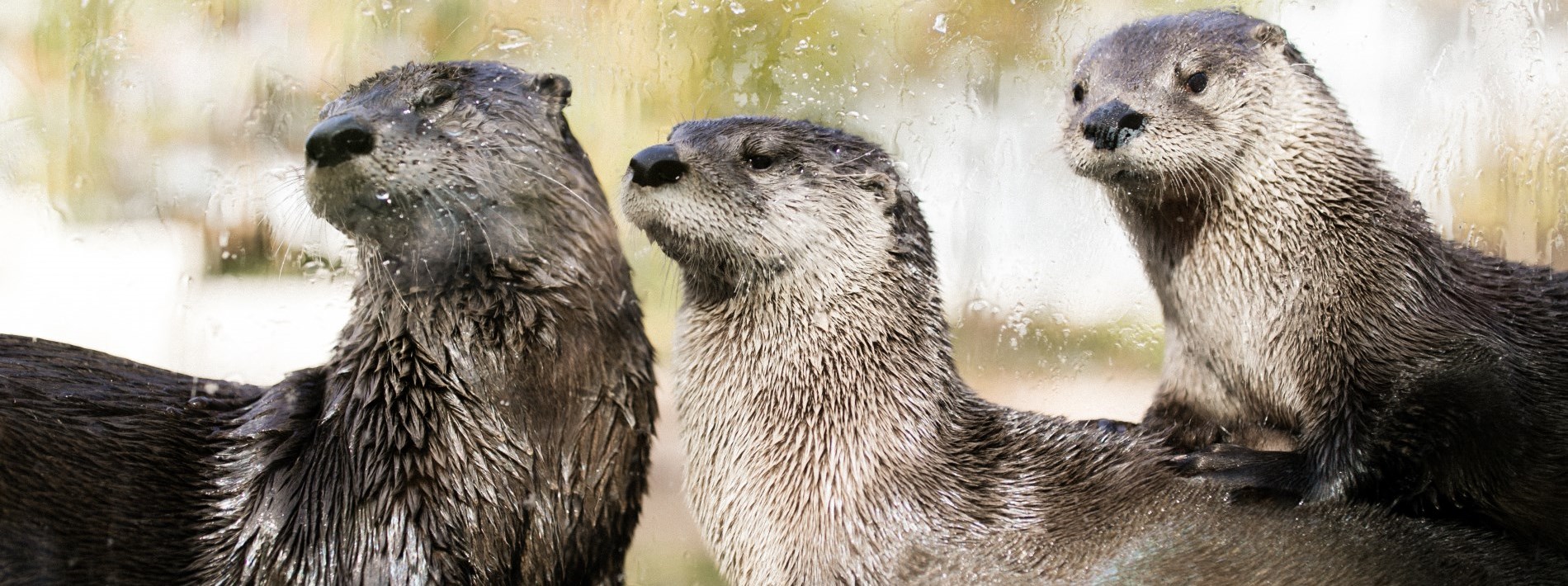Animal Welfare
We are passionate about the welfare of the animals in our care and are committed to being responsible stewards for the property and grounds we manage. We work to avidly pursue best practices, meet or exceed professional standards and to conduct our operations in an ethical and environmentally responsible manner.
Canada's Accredited Zoos and Aquariums (CAZA)
Riverview Park and Zoo is a proud member of the CAZA organization. Members must commit to upholding a rigorous Code of Professional Ethics and Respect Policies concerning the care, welfare and use of their animals, including the use of animal ambassadors for educational programming.
The animal health care program at Riverview Park and Zoo drives animal health and wellness plans through careful monitoring, assessment, veterinary support, research and shared learning from the network of accredited zoos and aquariums membership.
Canada’s Accredited Zoos and Aquariums (CAZA) logo displayed at our zoo signifies our excellence in animal care and management and our commitment to conservation and education.
Standards
You can be confident that we have met or exceeded rigorous standards of CAZA and that we continue to satisfy periodic reviews and site inspections carried out by zoological experts in areas of operations, animal management and veterinary medicine. CAZA is recognized by all levels of government in Canada, and is the standard in animal care and safety.
Requirements
In order to participate in animal loan or exchange programs, including the Species Survival Plan (SSP) facilities must be recognized as CAZA facilities.
Best practices
Standards in animal care continue to evolve and develop as networks of accredited facilities learn more and share research. We are proud to be a part of a wider network of industry leaders with a shared passion for animal welfare.
Animal healthcare centre
The animal healthcare centre allows us to provide exceptional health care for the animals at Riverview Park and Zoo. This onsite facility has two large holdings, several smaller holdings and a treatment room for medical examinations and surgical procedures. It is well equipped to meet the needs of the animal health team and the stringent standards of the CAZA/AZA requirements for quarantine and medical and preventative health care treatment.
We are thrilled to have this facility to provide regular health check-ups to our zoo animals. This allows for performing simple dental cleaning and examinations to animals with reduced stress.
What is enrichment?
Enrichment enhances our resident animals’ lives by providing opportunities that stimulate their natural behaviours and instincts. There are many kinds of enrichment including social, behavioural, dietary, visual and olfactory.
When you visit, you may notice objects in the animal habitats that are added to meet their psychological and physical needs. We use a variety of tools and techniques to encourage play, exercise or typical behaviours like foraging. We use the following tools to help:
- Tastes
- Smells
- Textures
- Sounds
- Puzzles
Enrichment is as important to our animal’s good health as proper nutrition and medical care. Our Training and Enrichment Committee is made up of staff and community members. The goal of all training and enrichment activities is to ensure that the activity promotes the psychological, physical and behavioural well-being of the animals in our care. All training and enrichment protocols must follow Disney’s S.P.I.D.E.R. framework.
Zookeepers will build and create different devices that our animals can play with. These stimulate their minds and mimic activities they would do in the wild.
Animal adoption contributions help fund animal enrichment for your adoptive animal.
You can help provide enrichment for your favourite animal at the park & zoo by donating enrichment items on our wish list.
To see some of our examples of species-specific animal enrichment, check out our social media at the bottom of this page.
Training animals in our care
Animal health is extremely important in our facility. Training our animals is done for annual health checks. It helps our zookeepers get a better view of the animals to notice any changes in their physical health. Training can include:
- Getting animals familiar with zookeepers and vets
- Displaying legs or wings
- Becoming familiar to needles for drawing blood
- Showing teeth
- Going on scales
Training is often done by using rewards like food and treats.
This makes sure our animals receive health care that is safer for the animals, our zookeepers and vets. We train the animals in our care to facilitate animal management, animal health, reduced stress, and ultimately avoid the requirement for sedation or restraint.
Diets of the animal residents at Riverview
Each animal has a specially created diet by nutritionists and veterinarians. These diets are prepared every day and contain all the essential nutrients our animals need.
Zookeepers prepare these diets for our animals. Some species are fed once every three weeks, and others three times a day, depending on the animal and their dietary requirements.
Most of the animals at the park and zoo are given treats. These are for training and enrichment and are made possible from your generous support with animal adoptions and other donations.
We do not feed any of our species live animals.


